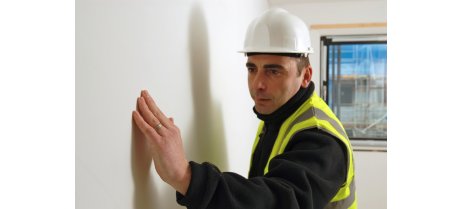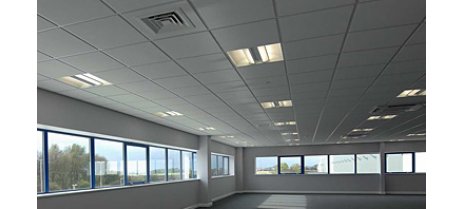Contact us today on
01484 351526
Fire rated partitions and ceilings
Plastering / Drylining
Wet plaster is now rarely used in the housing sector, but traditional wet plaster is usually still specified in areas of heavy traffic such as hospitals, schools and some commercial properties as it is still considered to provide a greater impact resistance and a hard wearring surface.
The most commonly specified wet plaster is Thistle Hardwall, a gypsum based undercoat plaster that can be used on most masonry. With a final coat of Thistle Multifinish it provides a smooth, inert, high quality surface to internal walls. The combination has a superior impact resistance, earlier surface drying and provides a durable base for the application of decorative finishes.
Drylining has largely replaced the practice of wet plastering in most applications. The main advantages being the speed of installation and drying time.
Drylining includes boards fixed to block walls and to internal metal or timber studs and ceilings. These boards can either be taped and jointed, ready for decoration, or the addition of a skim finish will provide additional impact resistance.
Suspended Ceilings
Suspended ceilings are particularly popular because they can significantly reduce heating costs and increase sound absobency. At the same time, suspended ceilings add to the aesthetics of a space by both concealing services such as electricity, water and telecommunications, and providing the ideal platform for a huge variety of lighting options. Specialist suspended ceiling systems, such as wash -down ceilings, provide clean working environments in facilities such as food processing plants.
Contact us today on
01484 351526